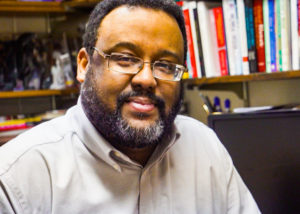At Your Fingertips: The University Writing Center
UA Little Rock University Writing Center
The UA Little Rock University Writing Center (UWC) now offers online assistance to all UA Little Rock students. As a unit of the Department of Rhetoric and Writing, the primary goal of the UWC is to help students develop strategies for meeting their writing challenges.
Success in an online program depends on a variety of skills, not least of which is the ability to write a solid academic paper. The UA Little Rock University Writing Center (UWC) recognizes this and now offer free online consulting designed to help students at any stage of the writing process.
As a unit of the Department of Rhetoric and Writing, the primary goal of the UWC is to help students develop strategies for meeting their writing challenges. The UWC consultants generally look over projects and provide suggestions to help identify patterns of error in grammar, spelling, and punctuation.
“Our philosophy is we don’t work on individual writing papers or individual assignments,” said Earnest Cox, director of the UWC. “We instead try to help students become more efficient, more effective writers.”
UWC-Online
UA Little Rock Online students of any discipline can now receive assistance through the UWC’s Online Writing Lab (OWL).

“What students will do is fill out a google form that would include submitting the paper being reviewed,” Cox said. “Students can expect feedback within 3 days of submitting their paper.”
Cox said students also have the option of scheduling an online video conference with consultants to receive feedback on their writing. To schedule an appointment with a consultant, students must call 501-569-8343
In addition to submitting papers online, students can also access writing-related resources that assist with thesis development, citation styles, as well as resume building.
“We really just try to have a resource so that if you have any problems with your writing in class or if you’re working on something like a resume, we have some materials that can help you with that,” Cox said.
For more information about the UWC call 501-569-8343 or email at elcox@ualr.edu.
